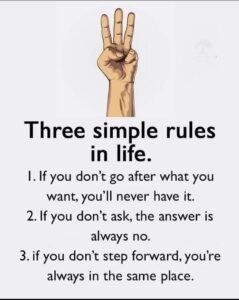Striving for success without hard work is like trying to harvest where you haven’t planted. David Bly
It is a human weakness that we always expect to be rewarded in excess of what we truly deserve. A bigger folly is that we are never ever satisfied with whatever we get. Part of the problem has perhaps been ingrained in childhood where parental pressure to perform even better implied that our performance was below par. The examination process and subsequent results announced reinforced the belief that our efforts are not adequate since we rarely attained a perfect score.
If we reorient our thought process, we would realize that most times we are comparing our performance to those of other peers and end up dissatisfied and perhaps frustrated. Instead if we focused on our potential and compared our performance with what we are capable of, it could be more revealing and very rewarding. It is when we don’t realize our full potential that we come face to face with the reality that we haven’t put in the kind of hard work that is required to get the payoff. Many a time we simply bank on luck, divine intervention and crooked ways to get optimum results from inadequate effort.
Having some yardsticks / standards/ benchmarks for us to aim at is a sure shot way of ensuring that our efforts are aligned with our goals. If one plans to harvest a bounty it is obvious that one has to invest in similar measure be it in quality seeds, manure, fertilizer or the physical labor involved. Similarly if one has to achieve success it is vital that we know the success parameters for that will provide us directions to what needs to be done by us to attain success. E.g If your aim is to be successful at rapid chess the traditional way and rules of chess won’t help as much as practicing the technique and style of rapid chess. Real success though is realized when one puts in ample practice time and plays the game against tough opponents.
Paying attention to criticism and feedback is another effective way to improve ones performance. Invariably pure hard work will not get one anywhere unless the efforts are in the right direction and we have the ability. To elaborate on the example of rapid chess even if we play a lot of matches against tough opponents, if we lack the ability to play at that level, it is important that we listen to those who offer constructive criticism and learn from it and give up the sport. Perhaps you might end up being a well reputed coach of the game and the transition will bring in much more success than you perhaps ever imagined. What is important to note is that the hard work and lessons paid of not in the way you wanted or hoped for but in another extremely divergent but very vital way.
Remember: Don’t judge each day by the harvest you reap, but by the seeds you plant.
Try this:
- Jot down 3-5 most repeated criticism about you by your parents/ friends/ co-workers. Mull over it and examine if they are true. Don’t justify your actions but attempt to rectify the faults that the critics highlight.
- Make a study of your daily life and write down how much of time you spend on what your core responsibilities are. Eg. If you are a student how much time do you spend on studies or if you are a parent how much time do you spent with your children in play/ studies and bonding.
This post is courtesy www.actspot.com
You are also invited to visit our WEEKLY Inspirational and Motivational Blog www.poweract.blogspot.com





